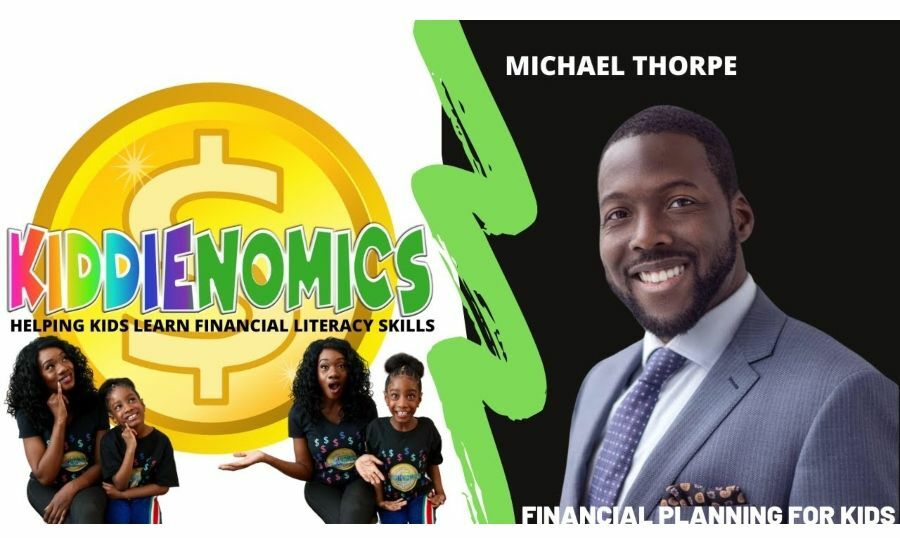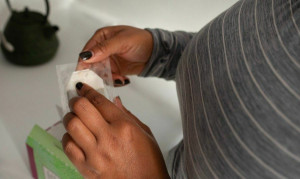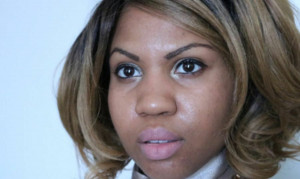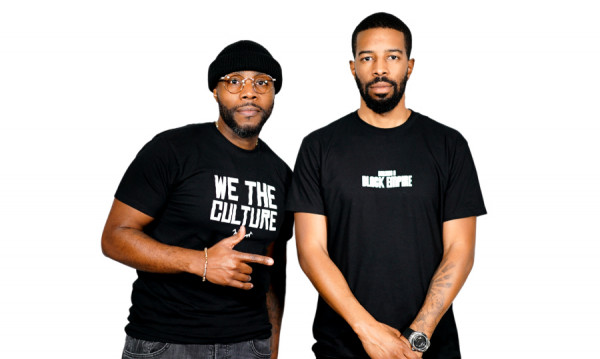The goal of KiddieNomics is to empower kids to become "tiny financial literacy ambassadors" who can help themselves, their families, and their communities to be more financially literate while developing a healthy relationship toward money management. KiddieNomics is targeted toward kids between 8 and 13 years old, chiefly in Black and other racialized communities, with the hope of placing them on the path to a successful financial future.
Brown, a Toronto mother of two, confesses that the lack of financial literacy skills in the Black community has led to negative patterns that have taken years to correct. “In our community, we don’t talk about financial literacy or even have it taught in schools.” Her knowledge on the subject is anchored in two decades of experience in finance. She's a private capital professional at Virtus Capital Management, a mortgage agent with Dominion Lending Centres (#12275) , and a financial literacy advocate. Brown spent years teaching financial literacy to young adults and teens but shifted focus after the realization that, by that point, they had already developed unhealthy financial habits. “We should really be focusing on teaching financial literacy to kids so they start learning skills early-on that will lead to positive financial decisions before making an income," asserts Brown concerning her shift to a younger audience. “Once a child becomes financially literate, it helps keep the entire family accountable for what they do and don’t do.”
An Inspirational Journey
Five years ago, Brown began coaching her 5-year-old daughter, Miki, on money matters like budgeting, stock trading, and even entrepreneurship. “When I asked what she wanted to be for her birthday, she said a Disney princess," Brown explains. Taking the opportunity to turn the birthday wish into an impromptu investment lesson, Brown advised her daughter, "she could own a piece of Disney by buying Disney stocks instead of just being a princess."
Brown insists that, in the long run, educating kids about investment and ownership is of more benefit to them than teaching them to focus on spending money on products that will be of no value later on. By teaching her own daughter financial literacy, Brown came to a realization about educating kids about money. “When our kids go to the store with us, they see us swipe our debit or credit cards over the reader and think of it as some magical thing that can always buy them what they want,” Brown says of kids watching their parent's behaviours. “Kids don’t necessarily understand what money is, so the main challenge in the teaching-learning journey is trying to get them to understand the relationship towards real money.”
In 2018, Stacy and Miki wrote a children’s book entitled, I Will Own a Castle, which is about helping kids aged 6 to 9 learn how to save and invest their money. Soon after, they launched KiddieNomics and posted a couple of videos in 2019 on RESP's (Registered Education Savings Plans), intending to educate more kids. During the COVID-19 pandemic, Brown and Miki were presented with an opportunity to hold a weekly online webinar called KiddieNomics, where kids could learn about financial literacy. Brown sees this webinar as a way of giving back to her family and her community during the pandemic.
Making It Appealing to Kids
KiddieNomics covers several interesting topics aside from finances like positivity, vision boarding, resume writing, and public speaking to mention just a few. Brown doesn’t deny financial literacy can be a tough topic to broach for many people. However, she argues that financial literacy is for everybody, and kids want to learn about it as long as the language is simple and the content is within their cognitive ability. Brown calls on parents not to underestimate their kids’ learning capacity. “Kids are too smart,” Brown says, basing the observation on her interactions with them during the show. “When I ask them why they want to learn, most of them say they want to make a lot of money when they get older to help people.”
How do parents make sure learning about money management is interesting for the kids? “We make it super fun on KiddieNomics,” Brown explains. “We do games, quizzes, prizes and sound effects. The kids love to share their knowledge and they love to know that they know stuff adults know.”
Black Representation
Currently, over 350 kids from all over the world are registered for the weekly session, and most of the kids come from Black or other racialized communities. Brown believes KiddieNomics is more inclusive for kids because they learn from people who look like them. “They see a Black mom, a Black daughter, and a Black expert teaching them about money or other relevant topics,” attests Brown. Different experts are also invited to share their knowledge, which highlights the various career paths kids can take by showing them so many successful Black people with different careers.

Making a Difference
KiddieNomics has been phenomenal in terms of bridging the gap in intergenerational learning according to the feedback received from happy parents now learning financial literacy alongside their kids. Brown is overjoyed with the grassroots success of KiddieNomics and all the love and support she and her daughter have received from the community. “When we started, I didn’t know if we would even get one kid, but now, we have over 350 kids from all over the world registered for the weekly session,” Brown elates, grateful to the knowledgable financial guest experts, engaged parents, and especially, the kids.
Although there are some challenges, such as financial support and time, Brown looks forward to welcoming more money experts to Kiddienomics to continue her mission of helping kids of diverse backgrounds attain security through financial literacy...and maybe even bring some parents along for the ride.

 By
By 






